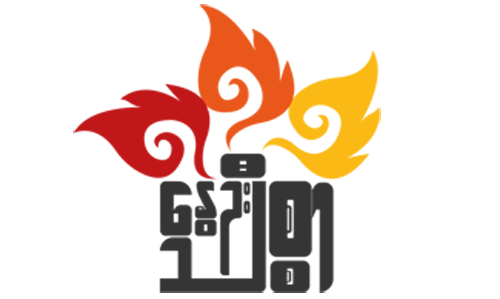MoeMaKa, March 13 2023
Another massacre committed by the military during the civil war

The KNDF (Karenni Nationalities Defense Force) issued a statement on March 12 stating that military council troops killed nearly 30 civilians, including 3 monks, at a monastery in a village in Pinlaung Township, Shan State, on March 11. It is believed that the military council troops killed the civilians who were sheltering at the monastery in Namneng Village, where the fighting is taking place in Pinlaung Township.
Photos of deceased men in civilian clothes and a monk near the wall and the stairs outside the monastery, were released. The news of 30 civilians, including 3 monks, being killed shocked and trembled readers again. Various thoughts and feelings arise about in what sense the military council killed these civilians and how cruel it was to kill nearly 30 people in one place in one incident. The military council troops are brainwashed with propaganda; every civilian found anywhere in their operations is a rebel, and it seems that the military council has been propagandizing its troops to retaliate brutally with the incidents of their troops being attacked.
In the past year, incidents such as the aerial attack on the Mone Taing Pin Village in Ye-U Township, the airstrike on Letyetkone Village’s school in Depayin Township, and the airstrike and raiding of the Yin Paung Taing Village in Yinmarbin Township have resulted in the deaths of dozens of civilians, including children and women. There are already up to 24 to 32 incidents like these, according to reports and statements from surveillance organizations that have been collecting and recording information. It was reported in the news that the NUG is trying to prosecute in international tribunals and courts regarding these civilian killings and war crimes. However, apart from the case prosecuted by Gambia regarding the Rohingya genocide at the ICJ (International Court of Justice) located at The Hague, Netherlands, there has been no other case able to summon and prosecute the military until now.
Myanmar is not a signatory to the Rome Statute of the International Criminal Court called ICC, a treaty that allows countries to be summoned, so it is not in a position to be able to punish Myanmar. When the genocide committed against the Rohingya ethnic group occurred, the Myanmar government army, the military, committed crimes against humanity and atrocities by killing hundreds of villagers, including children, setting the villages on fire, and destroying the evidence as if the villages had never existed there. In just a few weeks, thousands of Rohingya and civilians were killed, with the accusation of being supporters or members of the ARSA armed group. It is unfortunate for Myanmar not to be able to stop the military from committing such genocide and crimes against humanity. The prosecution for these genocides has been viewed as international bullying against Myanmar and an agenda of OIC countries by the Myanmar NLD party, government members, some MPs, and many supporters, and they have defended the military’s crimes.
Now, after the military coup, the military council has been conducting arrests, killings, tortures, and destroying the houses and villages of civilians and villagers, accusing them of being rebels without even checking in Sagaing Division, Magway Division, and Kachin State. Massacres of civilians have already been committed for the first time in the central areas of Myanmar, such as Sagaing Division and Mandalay Division, which are the main recruitment areas of the Myanmar military. It is necessary for the armed organizations against the military council to think and find a way as much as they could regarding how to prevent such killings from happening again. I think that they should adopt strategies and tactics that will protect the civilian population rather than the idea of political exploitation that the more war crimes the military council troops commit, the faster the military council falls. I think it is urgently necessary for the armed forces to demolish the military council in a way that will cause less damage to the public strategically and tactically such as in what regions the battles to be conducted, in what regions the armed forces are to base and conduct operations etc.


